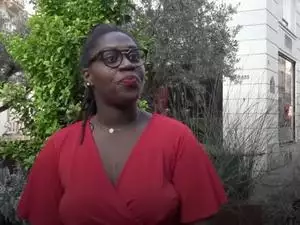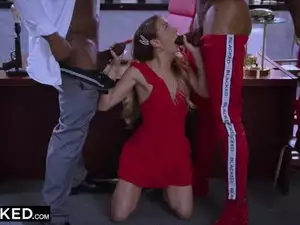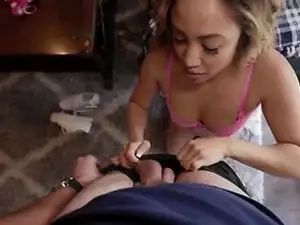My Matrix
- 2 years ago
- 21
- 0

 4 years ago
4 years ago
Neo dropped low and spun, his leg whipping around in a vicious ground kick that chopped the legs out from under the agent, and then he spun around to wrap his bare legs around a cold brass pole and toss his head, sending masses of golden locks swirling in the air. 'What.' Neo paused. The agent was back on his feet, coming at Neo with a .45, piercing the air with bullets. Neo ducked from side to side, letting the bullets whiz by him harmlessly and then, squaring his shoulders he began...
 2 years ago
2 years ago
I am Timothy du Shard. I was taught to be a matrix mechanic. My birth home is Castle Shard on Darkover. We are a lesser line of the Hastur clan. When I was fourteen I rode along with my cousin Rafael to learn how tiny star stone fragments were carefully fused to make larger ones. We gathered those tiny stones from the river which came down from the mountains in the spring run-off. Then we carefully matched them and, one by tedious one, linked them together. If we chose properly and aligned them...
 3 years ago
3 years ago
1. Tape 42Everything went through the matrix... Not to be the next spoof to cash in on the movie, but that’s just what the thing was called: The VTR-Matrix. Video Tape Recorder, but DVD and XD players were also patched in under that abbreviation. Hence the guy operating it was called The Tape Operator. His mother didn’t foresee this career move and had named him Gabriel. Like the angel.But over the past 27 years Gabe had proven to be anything but angelic. Not that when you’d meet Gabriel you’d...
 3 years ago
3 years ago
I leaned back in my chair and watched Kelli, the new girl working on Mikie. I had to laugh, she'd come to me hungry and alone, looking to join my stable of girls. Yeah, I run a stable, been crawling my way up from the streets most of my life and had finally succeeded in taking over most of the East side. We did pretty much whatever needed done, drugs, sex, alcohol, loan sharking, protection and a little freelance work. My people knew not to cross me, I hadn't made it to the top by being...
 4 years ago
4 years ago
6. Human TrashGabe had the early shift. Danny had spent the night and he tried quietly to slip out of the bed, but she woke up anyway.“I gotta get to work,” Gabe said, “but you’re welcome to sleep in if you want.”Danny got up too, her naked body still looked great, especially in this moody morning light. “Need a hand with that?” she said, pointing at his morning wood. Gabriel glanced at the clock, “Damn. I would absolutely love it, but I have to skip breakfast too if I wanna be on time.”“It’s a...
 4 years ago
4 years ago
3. Clear ReceptionGabriel looked at the time on his phone. Eight PM sharp. Brilliant.Pretty much everybody at work would be gone and he could do some finetuning on the matrix. For a moment he fantasised....He would be responsible for the machine that had gotten so intelligent that it had started World War 3. Then it would become the center of a new world where humans would be grown to in a cocoon with sludge in them, so that the machine could harvest their life blood as batteries. And then we...
 3 years ago
3 years ago
4. Every Rose Has Her Thorn“Hey Vern!” Gabe called to his friend, “Stop pretending to work and have a smoke with me.”Vernon was the planner and he pretty much decided who would edit where, so Gabriel had decided Vernon would make a good friend. And also a bit because in addidtion to his name he actually looked like a young Vernon Wells.“You shouldn’t talk, Gabe.” Vernon replied.“Hey! I don’t pretend, yeah.” Gabe pretended to be offended and finished with a grin, “I actually just sit there...
 2 years ago
2 years ago
7. SnuffedHalf past nine. Gabriel abruptly awoke from a dreamless sleep. The light right above him was bright and his eyes worked hard to adjust. He decided to assist in not staring at the light. Looking around he came to the conclusion he was in a hospital, the cute uniformed rear end of a nurse tucking away sheets kinda gave it away.“What the hell am I doing here?”The nurse turned around and said: “Good morning.”Gabriel repeated his question, albeit more politely.“Don’t remember?” she...
 2 years ago
2 years ago
2. The Girl In The Tartan The smoke corner was a simple cabin with an ashtray mounted in the middle and an airvent in the roof. Office-myth had it that as many as two people could fit into it. But Gabriel, being an expert smoker, knew the truth.The truth was that two people could fit inside if they were either willing to have cigarettes pushed in their eye, or if they were willing to become very intimate. And there certainly were cases where Gabriel wouldn’t have minded a bit of intimacy and...
 3 years ago
3 years ago
5. No Particular Kind of SpecialTwelve thirty, lunch time. Whatever hadn’t been dead calm for Gabriel already, calmed down now. He wasn’t expecting to have anything to do for about four hours –at least- so he went for coffee.Walking back he tasted his steaming cup of moccacino stuff and realized there was a very good reason for not ever having tried it before, so he turned and went for a real man’s cup of coffee… But with milk and sugar. Sugar was good. A lot of sugar was better though.With his...
 2 years ago
2 years ago
Matrix: Residual Self-Image By Lynn Lefey I walk from the stage, alive with the sound of eighty thousand cheering fans. I glisten with sweat from the exertion of the performance. I've done my two encores; I'm done for the evening. The backstage area is alive with life. Roadies, reporters, groupies, performers... and the last thing I expected to see. I gravitate to the man, painfully professional in his black suit. He has the short, immaculate haircut and dark glasses marking him...
 2 years ago
2 years ago
Hunter and the Beast (Based on Beauty and the Beast) One upon a time, in a faraway land, a young lad, Gaston, lived in a small village. Although he was the greatest hunter and the best looks in the village, he could not win the heart of his desire. The maiden, Belle, rejected all of his offers for marriage. To impress Belle and make her his wife, he went deep into the forest in search of the legendary Beast. The lad believed that if he could bring back the body of the Beast,...
 3 years ago
3 years ago
Once upon a time there was a beautiful young woman named Bellezza, but everyone who knew her called her Elle. She was a princess who lived alone in a castle in an enchanted forest with only her horse. She was surrounded by a colorful garden and large trees. Elle was far from town and felt lonely in seclusion. She tended to her garden, fed her horse, and read books, but nothing seemed to truly satisfy her.Elle would often stare out the window and daydream about riding her horse onto the...
Humor 3 years ago
3 years ago
Introduction: Tale as old as time? I desire, therefore I exist. -Angela Carter, The Infernal Desire Machines of Doctor Hoffman. *** It was agreed: Leona would stay with the Beast for 12 days, at the end of which she would decide whether or not to marry him. Rupin and Leonas father brokered the deal at the Christmas banquet Rupin held for the entire town, at his castle in the countryside. Rupin seemed quite taken with her father, asking him all sorts of questions about his trading with the...
 2 years ago
2 years ago
There she was, a 5’4” red-headed goddess standing on the other side of the strawberries and I was completely captivated. She had her eyes closed after she had popped the top of the plastic container and I watched as she leaned in closer to the fruit and as she took a deep inhale, I noticed my own intake of air match her own as if I were smelling them as well.It was as if the whole world went into slow motion as she slowly opened her eyes and I could take in the pair of the brightest and most...
Cheating 2 years ago
2 years ago
Once upon a time in a land not too far away lived a widowed man and his three beautiful daughters, who lived in an opulent manor just outside the village. Although kind and gentle, he was a shrewd businessman, who made his riches through hard work and determination. Not wanting his daughter to ever want for anything, the merchant lavished them with exquisite clothing, giving them anything their hearts desired. The older two daughters were vain and greedy, always flaunting their wealth,...
Straight Sex 4 years ago
4 years ago
Through this scene there walked a girl no less beautiful than her surroundings. Slightly built and lacking society’s trained grace, she was dressed simply in a cotton dress and jacket, covered over by a plain riding cloak, its hood thrown back. She was carrying an old leather travelling bag. Any lady of good breeding would have been quick to mock her rustic appearance, the better to conceal their gall at the impossible perfection of her face. It was a face to draw the interest of both...
 3 years ago
3 years ago
The beast was raging inside of me tonight. It would have to be fed. I hadn't let it feed in a long time. The last time was more than three months ago. The anger was strong, pounding in my head. Strength was coursing through my body, electric pulses making my muscles jump, twitching under my skin. I could barely drive, pressing the accelerator to the floor, pushing the car harder, driving far away from the city. The beast would need to roam tonight, and I was taking myself far into the woods...
 3 years ago
3 years ago
Attack of the Beast By Anon Allsop The brilliant sun broke over the little planet as we penetrated its atmosphere. Our mission was to see if it held potential for a small colony or mining operation. There were a total of 6 of us, including the pilot and co-pilot, but even they had duties besides flying the little craft. We all had been hand selected by our space station commander for this mission, and cross-trained so we could lend a hand, should the need arise. I studied every...
 3 years ago
3 years ago
Cindy loved walking through the forest near there home. It helped her relax, and think clearly. That day, she was walking down one of her favorite trails. On the right side of the path is a babbling brook, where many times, she has dangled her feet into its cooling waters, on the left was a heavily wooded area. She loved to explore the forest, but she dared no venture their when the sun is setting. The heavy grown of trees blocks the view of the path making it dark and mysterious. That...
 4 years ago
4 years ago
She smiled "Good morning," then, "Please don't stop." Beast couldn't help smiling too. He nodded, bringing his lips down to her nipple and his hand toward her shaved pussy. Gently, he put one of his fingers inside her tight hole and wiggled it. She was very sensitive down there; she began to moan and lift her ass up from the bed. Beast had an instant hard-on. Her innocence turned him on easily. Belle lifted his face from her breast and kissed him full on the mouth, sticking...
 3 years ago
3 years ago
As I gazed through the rain stained taxi window, at the dimly lit streets of Bangkok, the shuttered shop windows could not pass quickly enough. My mind was distracted and my eyes were in no mood to rest on anything. So they hopped manically from my watch, to the window, to my phone. My thoughts were immovably fixed on a hotel bedroom, but I knew not where. Somewhere out there, in the forest of hotels that clutter the area called Sukhumvit, was the girl I loved, and the taxi was taking me ever...
Cuckold 2 years ago
2 years ago
-Samuel Johnson *** "Careful,” one dancer said to another. “The freak is here.” Andrea pretended not to hear them. She let her eyes adjust from the afternoon glare to the dim interior of the club and then took her regular seat. It was a slow day by the look of it, the club less than half full and only a few dancers working, but it was early yet. She was already looking around for Leila, but it seemed she wasn't on the floor yet, so Andrea just watched the stage for now. A dancer...
 3 years ago
3 years ago
A little later and they were back on their horses and traveling. Athea had finally fully recovered from her rather unusual adventures of the morning. It was time for her to sort through all the things that had happened since ... where to begin? She didn’t know why, but she felt a panic attack coming. Just a week ago her life was so simple, shitty, but simple. Today she wasn’t even sure who she was anymore. She needed a baseline, somewhere to start, a fundamental truth about her existence....
 3 years ago
3 years ago
@ “In the morning you are dragged from your cell. Reunited with princess Gwendolyn, who is dressed in fine white robes, while you are marched naked through the halls.” Shawn relishes the description. “Further down into the bowls of the dark earth. You are brought to a large chapel with a demonic alter at its center.” Mark’s sissy cock twitches at the description. & A group of men stand huddled together at one side. They are obviously some of the soldiers that had assaulted the...
 3 years ago
3 years ago
John Derek was looking for a new movie for his beautiful young wife, the ravishing Bo Derek. He needed something to show off her beautiful body to the world once more. Ever since she was first presented to the world in her first movie, ’10’, Bo Derek had been the source of many fantasies for thousands of men. And a fair share of the woman population as well, I would suspect. Her chiseled features and firm body was a rare find indeed, even in the world of movie stars. Yes, Bo...
 2 years ago
2 years ago
--- Chapter 3: Taming the beast --- The sound of the key frolicking in the keyhole of the front door echoed through the deserted hall way. *Click* The door was unlocked. But it remained closed, a soft bounce came from the door. The sound of something being hit against the door, but not as if someone was knocking. And it was silent again. For just a few seconds. A soft growl comes from the other side along with a short giggle. Then suddenly the door sweeps open and Jule and Kate...
 2 years ago
2 years ago
They say that fiction is stranger than fact and herein lies the evidence. This is the first part of three of the tale that should never be told, the tale that should be consigned to the waste bin of discarded memories such is the intensity of emotion it evokes to this day. Pain, pleasure, lies and deceit of the highest order all played their parts. Yet the two main characters, those terrible twins of guilt and jealousy took the leading roles and ensured the tale of longevity when both of us...
Cuckold 3 years ago
3 years ago
The rest of the girls in the room continue their seductive dance, I could see the fear and panic in their eyes as inwardly each of them hope that they wouldn’t be chosen next but they keep the smiles plastered on their faces and don’t miss a beat in their shared highly erotic dance, they couldn’t, they would keep dancing until they either collapsed due to exhaustion or I got bored with them. I pass my gaze over the naked teen girls taking notice of their curves, their unblemished skin and the...
 4 years ago
4 years ago
The Beast By: Melissa Attimes Synopsis: A young lady promised her mother that she would take care of her deadbeat brother when her mother is no longer able to. After the mother dies the lady discovers that the son's behavior is so bad that her only choice is to throw him out of her house or turn him into a girl. Which option should she chooses? Categories: Crossdressing / TV, Femdom, Authoritarian, Physically Forced or Blackmailed, Real Life Situation, Chastity Belts, Hormones,...
 4 years ago
4 years ago
“Watch out!” Iden shouted, his boot dislodging a rock. It rolled down the steep incline towards Isabelle, picking up more loose stones as it went, until it had formed a kind of miniature rockslide. She dodged out of its path, taking cover behind a nearby boulder, the stones clattering against it as they cascaded down the mountainside. “Careful where you step!” she yelled back, peeking out to glare at him. They were really far up now. Iden had seldom seen the clouds from above, they created...
 2 years ago
2 years ago
Pulling her out of her intense reverie, her Beast arrived at her cell. Her gaze ran along the thick, dark chest hair exposed by his partially unbuttoned white shirt. His transformation back into a human hadn’t completed all the way, probably because she had been having sex with him when it happened. He had a thick, hairy chest and was at least six foot three, always towering over her. His muscles bulged everywhere, making most of his clothes appear slightly too small, unable to contain him. His...
Fetish 2 years ago
2 years ago
Once there existed many such creatures, like the Beast. Although in time, the humans have hunted down many such creatures into near-extinction. Except for one creature, a tentacle creature, that history will know and call as simply - the Beast. For his rule was re-established and his kin would achieve dominance, that none could or would be able to challenge him again. But for now, the lair of the Beast remains a simple dark forest - from where several young adolescent boys that had gotten...
Gay 4 years ago
4 years ago
Nervous... That was the only word for it. James was nervous, as he sat in the back of the car. He was aware, of course, that his mother kept a discreet eye on him in the rear view mirror, but his thoughts were on keeping the contents of his stomach settled. He was concentrating so hard on that he didn’t hear his mother’s question. “James?” She said a bit more forcibly. He blinked, re-focused, and looked up. “Yes?” “I asked you a question,” she said with a smile. “What did you say? I was...
 2 years ago
2 years ago
8. Freeman“Wow!” Roxanne exclaimed when Gabriel opened the garage door, “What a car!”She had actually been in it before, but only now she had the time to properly admire it.Gabe grinned, it was his baby and like any proud parent loved to hear when people liked their k**s, “Yeah, oh yeah. That’s a ’66 Shelby Mustang GT-350. I call her Grace.”“Why not Eleanor?”“Ah, you’ve seen the movie. Well, every nine outta ten Mustang owners probably call their car that, but let’s be honest here. How many of...
 3 years ago
3 years ago
He liked to believe he wasn’t violent, but the moment she started with those snarky comments his anger spiked. She used that mouth and tongue of hers like a weapon designed specifically to get a rise out of him, perfectly orchestrated to bring the beast to the surface. Usually he could resist, deny her the satisfaction of knowing she got him right where she wanted him. Tonight he wasn’t as strong. It always started when he got home. Today was no exception. He could tell her mood by the way she...
Hardcore 2 years ago
2 years ago
“What’s wrong? What’s wrong?”Anthea looked up at her mum as she sat down at the dining table. “Nothing is wrong,” Anthea responded watching as her mum hurriedly dried her hands with a tea towel.“Is the baby okay? Are you okay? Is Jack okay?” she asked as her husband came into the room and pulled up a seat at the table.“We’re all fine Mum,” she responded exasperated with her mum’s anxiety. “I have something to tell you.”“Sit down Helen,” her dad snapped. “Give the lass a chance to speak.”Anthea...
 4 years ago
4 years ago
Uther By Ellie Dauber (c) 2006 Introduction According to the legends of King Arthur, Merlin changed Uther Pendragon into a double for Duke Gorlois, so he could spend the night with Ygraine, the Duke's wife. Ygraine and Gorlois had three daughters: Elaine, Morgause, and Morgan le Faye. During their time together, Ygraine became pregnant with the child who was to become King Arthur. Uther's men killed Gorlois that same night. This is my TG (of course) version of what...
 4 years ago
4 years ago
The Paladins struggled up the rocky crags, the weight of their armor and their heavy shields making their progress all the more difficult. They had tied the horses up at the base of the mountain, the climb would have only resulted in broken legs, and it had taken them almost a whole day to reach the peak. The terrain here was all jutting rocks and knee-deep snow. Perilously high falls and slippery surfaces had resulted in more than one accident, but none of their number had been injured thus...
 3 years ago
3 years ago
The the wind howled around the quayside as I stepped onto terra firma for the first time in weeks, the wind threw sharp shards of ice to sting our faces as we looked up at the sails as they were finally furled and stowed as our captain grinned at our discomfiture, "Au revoir!" he joked as if he knew we should soon be recalled. Those such as were left, and we were few enough, I shuddered. My best uniform packed securely in my Valise, awaited me, and just a few more duties before I...
 2 years ago
2 years ago
The Beauty & the Beast Hi, I’m Saransh. This incident happened a few months back, the night of 3rd February to be precise. It involves my elder sister’s friend Suhani and me. I’m narrating it from her point of view as it seemed more interesting that way. You can write to me on for the feedback or just to say Hi. My name is Suhani. I have finished my masters and started working with an NGO. Since my college I have been dating Kunal. I call him Kanu. He is a nice boy, sweet, simple and very...
 2 years ago
2 years ago
I had always been scared of Jerry, my boss from summer camp, yet here I was, in a hotel room with him while my boyfriend was far away. I knew from the look in his eyes that after he had licked me to a climax, he hadn’t finished with me. Jerry pulled me to the edge of the bed pushed my knees back and prodded his big dick between my legs. I asked him to wait, my body and mind weren’t ready for him, but he didn’t seem to care and said he had to find out how tight my Asian pussy was. I lay back...
Cuckold 3 years ago
3 years ago
“Darkness is its own kingdom, It moves to its own laws, And many living thingsdwell in it.” -Patricia McKillip My kind is startling to humans when we are accidentally glimpsed, cloaked in night’s dark mystery. We are a unique type of were-folk, with an appearance more feline than wolfen, and of course werewolves are far more prevalent in your mythologies. We learned long ago to avoid contact with humans whenever possible and as a result there are few references to us in your histories. Created...
Fantasy & Sci-Fi 3 years ago
3 years ago
Hi, I am Rahul. I am reading ISS from the past few years and this has given me courage to narrate one of my sexual experiences. Let me first tell you something about me. I am Rahul Sharma aka DEATH BY CHOCOLATE originally from Delhi, currently staying in Bangalore .My height is 6 ft 2 inches, age 23,slightly dark and my “buddy” measures around 9 inches. Lost my virginity at age 16 to my first love in school. This is my first story so please excuse me for any mistakes. It happened 6 years ago...
 2 years ago
2 years ago
Tuesday, July 12 2016 6:50AM Palos Verdes, California As Bruce continued changing into a human, he snatched a towel from under David's boogie board and dropped it on his lap, "That's better, it's best not to get arrested on my first day...besides your GG'ma would turn me into chum!" he laughed to the teens. "So you are my mentor...Bruce is it?" Meagan asked, while watching that tail of his was still very much there, even though he could pass for a human...except for a now much...
 4 years ago
4 years ago
Bella and the BeastA Horror Story of Animal Lust and a Young GirlIntroduction and Disclaimer This is a story of a thirteeen-year-old girl who becomes the object of a strange, mythic, humanoid creature. The Beast has a primordial, imperative drive to mate, but has endured decades without opportunity. He happens to encounter a rare candidate—lovely, young Bella. It is a violent story of inter-species sex, and readers who are under eighteen, and those who would be offended by a very...
 4 years ago
4 years ago
Sittin' here thinkin', like usual, is a bummer. Been doin' a lot of it lately, sittin' on a bar stool. The thinkin's mostly 'bout women. I like women. Hell, who doesn't? Problem for me is they ain't exactly beatin' down my door tryin' to get to me. I'm the beast in the drama, right? So where's my goddamn beauty! Answer, nowhere I know of. But, I'm a realist. Like I'm sayin', pretty I ain't; hell, I got more in common with Quasimodo than Tom Cruise. When I was young, it made a...
 3 years ago
3 years ago
It was two days later. Again that crazy crave crawled in Sharon's pelvis. She could feel the itch, the desire. She could sense it growing. She knew it was there, alive like an animal, like a terrified beast seeking solace from a dreaded hunter. The beast hid in first one corner of her twat, and then laid flat on the bottom of the cave, and then it stood up and reared his head outwards, as if to challenge all comers: "Fuck me! Fuck me! See if you can fuck me!" She felt it growing stronger,...
 1 year ago
1 year ago
Do you know of the porn site Motherless.com? You should. I’ve reviewed it a few times on my site, The Porn Dude, although it was for different genres every time. This time around, I’m going back to this place and looking at a specific and niche little category many of you are just begging me to cover. We’re looking at vintage porn today. While it doesn’t have the same resolution and quality as the porn you can find today, it’s definitely a genre of porn that has a lot of personality to it and...
Vintage Porn Sites 3 years ago
3 years ago
I should have known better. I should have remembered that old saying, "If it looks too good to be true, it is." I was in love. She was damned near all I thought about with the exception of my studies and it didn't make sense to me. I prided myself on my intellect and my ability to think logically, but there wasn't anything logical about the way I felt about Althea. She was beautiful, smart and very popular and I was not. I wasn't a bed looking guy, but I was nothing exceptional. I was...
 4 years ago
4 years ago
In the video projected on the wall, was the view of Goliath screaming “Incoming!” at the top of his lungs and Fatty firing an Arc Cannon as 30 huge black rhinos charged towards them through a field. One by one they fell, but some of them still reached the pair. As the few who had escaped Goliath and Fatty’s cannon fire hurdled out of the grain field, Fatty roared loudly and launched forward to meet one. It was like smashing into an immovable object as the massive horn collided with Fatty’s...
 1 year ago
1 year ago
Motherless. A one-word website title that says everything it needs to say. This is a site where the rules are, more or less, completely thrown out the window, morality means absolutely nothing, and there is nobody to save you from it. Hedonism is God here.The site likely is also called this due to the fact that the girls who end up on motherless.com likely have no positive female influence in their lives to keep them from it. Motherless is the place parents spend their whole lives fearing that...
Porn Pictures Sites 1 year ago
1 year ago
I always considered Motherless the “4chan” of porn. Not only because Motherless was somewhat popularized there, but because Motherless also encourages users to share their own content in a very open way. This means minimal bullshit like moderation and censorship, and a strong “anything goes” attitude that leads to free and extreme content. It encourages people to create and upload their own homegrown content, like videos of their girlfriend pissing or spycam videos of their cousin....
Amateur Porn Sites 1 year ago
1 year ago
What is it about Motherless that makes me fucking cum every time? Maybe it is how raw and amateur the porn on the site comes across as, or the content is just that fucking hot. Perhaps it is the fact that there is an astronomical amount of pornography just waiting for a dumb fuck like you to beat off to! I really don’t know, and frankly, I’m not going to pretend that I do.But what I do know is that if you love BBWs, the Motherless.com homepage will not be of much use! Preferably, head on over...
BBW Porn Sites 1 year ago
1 year ago
Have you ever heard about a website called Motherless? Home to all kinds of kinky porn niches, with a side of the mainstream crap? If you are into some questionable fap content, you might want to check this website out. Plus, Motherless is a free porn website, so you can browse as much as you fucking want. Now, I am not really here to talk about the website in general… I am here to tell you about their amazing category, called voyeur porn.The world of voyeur fucking is a rather interesting one....
Voyeur Porn Sites 3 years ago
3 years ago
The Five Kingdoms of Arstoria had been embroiled in the Great Ancient War for centuries. The war came to an end when Kalace, the Wizard King conquered the five lands and brought them under his rule. Kalace, the Wizard King of Arstoria, conquered all of his opponents who were unable to deal with his overpowering magic. When Kalace had united the five kingdoms, he brought peace to the warring kingdoms and was revered and celebrated by his later generation. Kalace, however, had a dark weakness in...
Fantasy 1 year ago
1 year ago
Woah, did Motherless.com get a facelift? I know I suggested it in my review, so I guess they listened to me! Well, I’m not going to brag too much about it, and instead, I’m going to focus on what I’ve set out to bring you today. We’re looking at an amateur website, and I just know that many of you are begging for amateur creampie content, so that’s what we’re looking at. I know how much you think Motherless can look sickening and pretty gruesome at times, but the creampie content can be quite...
Creampie Porn Sites